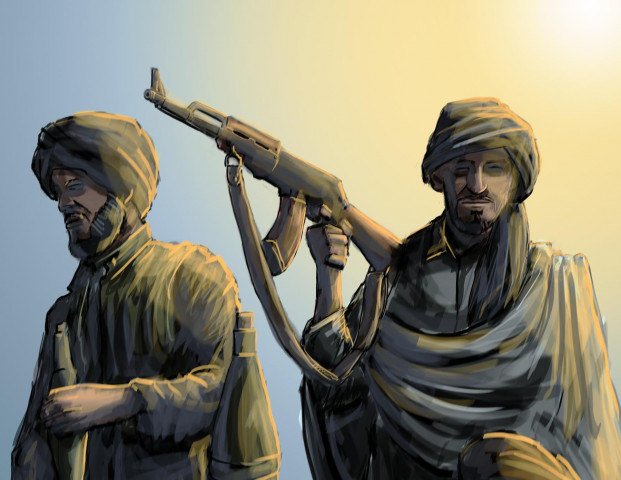The Baradar release
The release of Mullah Baradar may be a damp squib rather than a catalyst, appeasement rather than rapprochement.

A key question is going to be whether those working in the background to broker talks between assorted Taliban groups and the governments of both Afghanistan and Pakistan are talking to the right people inside the Taliban movement. ILLUSTRATION: JAMAL KHURSHID/FILE

Given that Afghan President Hamid Karzai is yesterday’s man and increasingly an irrelevance and his administration in its dying months, there is a real urgency attached to managing the negotiating space between now and the American withdrawal from Afghanistan by the end of 2014. A key question is going to be whether those working in the background to broker talks between assorted Taliban groups and the governments of both Afghanistan and Pakistan are talking to the right people inside the Taliban movement. Mullah Baradar and the Quetta shura of which he was reportedly second-in-command were the right people three or four years ago — but are they as relevant today as they were then? The Taliban are a dynamic entity and currently undergoing something of a churn. There are internal rifts on both sides of the border that have degenerated into bloody fighting in the last month on, at least, one occasion. The release of Mullah Baradar may be a damp squib rather than a catalyst, appeasement rather than rapprochement.
Published in The Express Tribune, September 12th, 2013.
Like Opinion & Editorial on Facebook, follow @ETOpEd on Twitter to receive all updates on all our daily pieces.














COMMENTS
Comments are moderated and generally will be posted if they are on-topic and not abusive.
For more information, please see our Comments FAQ